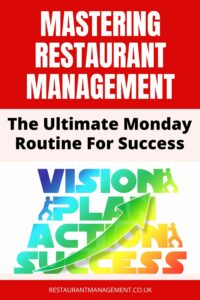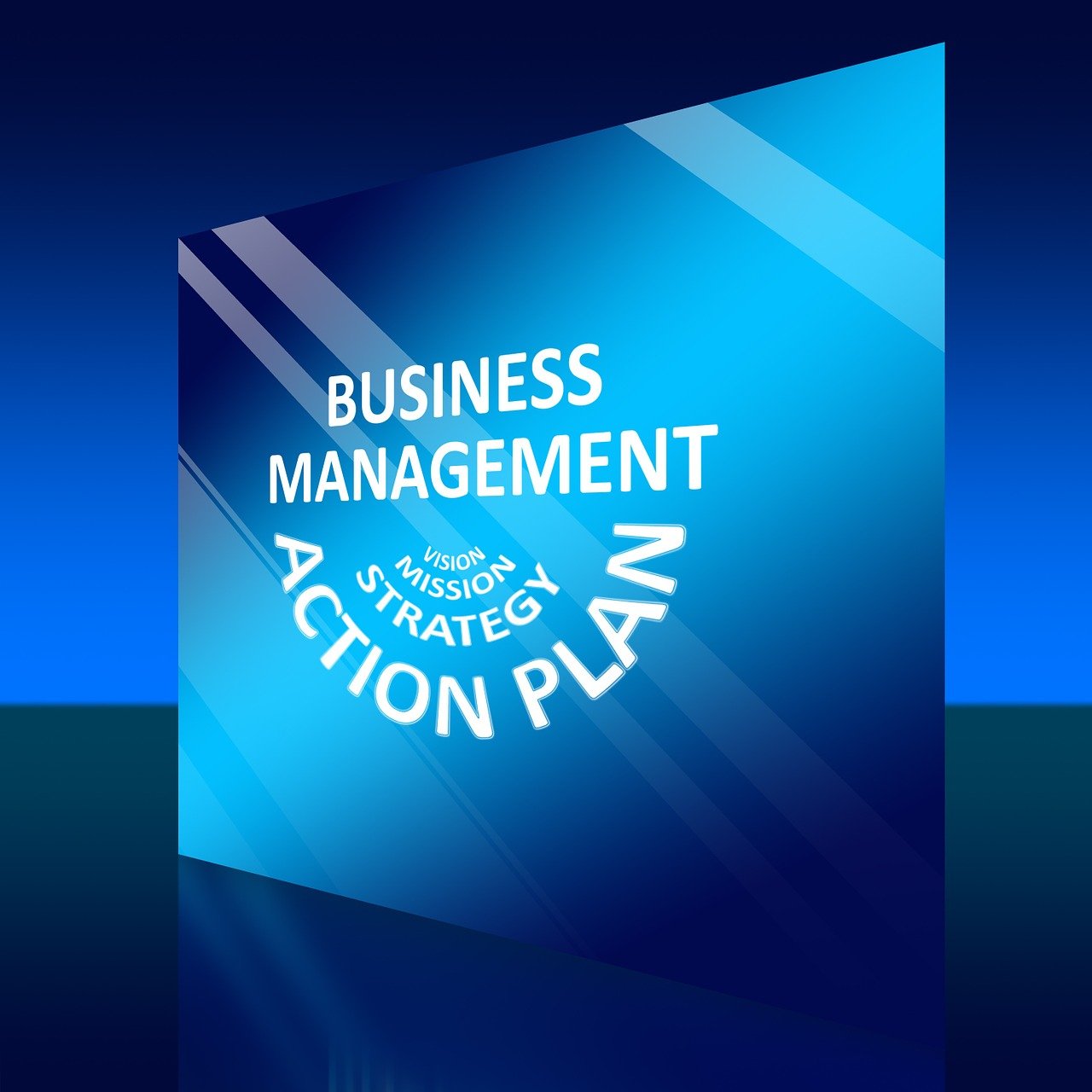Mastering Monday Routine for Restaurant Managers
Importance of a Solid Start to the Week
Mondays are often the most dreaded day of the week, but for restaurant managers, they are a critical opportunity to set the tone for the entire week. Monday routine for restaurant managers means a solid start to the week that can lead to a smoother, more efficient week, while a rocky beginning can create a chain reaction of problems. This day is not just about opening the doors and hoping for the best; it’s about laying the groundwork for success. As a restaurant manager, your Monday routine for restaurant managers is foundational. They ensure that your team is prepared, your inventory is stocked, your finances are in order, and your goals are clear.
Overview of Monday’s Key Tasks and Routines
A Monday routine for restaurant managers involves many tasks, from inventory checks and gas meter readings to financial reviews and guest service preparations. These routines are not just about ticking boxes but about understanding the nuances of each task and how they interconnect. Every task is essential for ensuring the efficient functioning of the restaurant. For instance, accurate inventory management prevents wastage, while precise financial records help better budget and forecast.
Benefits of Efficient Monday Routines
Having a structured Monday routine offers numerous benefits:
- It provides clarity and direction, ensuring that no task is overlooked.
- It promotes consistency, which is crucial for maintaining high standards in a restaurant.
- It helps identify potential issues early, allowing for proactive problem-solving.
- Efficient Monday routines can significantly reduce stress, making the rest of the week more manageable.
By mastering these routines, restaurant managers can ensure operational efficiency, financial accuracy, and exceptional guest service.

Inventory and Stock Management
Conduct Stock Count and Review Inventory
Steps for Accurate Stock Counting: Accurate stock counting is the cornerstone of effective inventory management. Begin with organising your inventory area to ensure everything is easy to locate. Use a systematic approach, such as the FIFO (First In, First Out) method, to count your stock. This method helps not only maintain fresh stock but also identify slow-moving items. Employ digital tools like inventory management software to record counts in real time, reducing the chances of human error. Regularly audit your counts to ensure consistency and accuracy.
Tools and Techniques for Inventory Review: Incorporate tools like barcode scanners and inventory management apps to streamline the review process. Techniques such as cycle counting, where you count a portion of your inventory regularly, can be highly effective. This method ensures that discrepancies are identified and rectified promptly. Additionally, data analytics can provide insights into inventory trends, helping you make informed decisions about stock levels and ordering schedules.
Restaurant Inventory Management: The Way To Unlimited Profits
Display COS Action Plan
Understanding COS (Cost of Sales)
Cost of Sales (COS) is a critical metric that represents the direct costs attributable to the production of the food sold by the restaurant. It includes costs like raw materials and ingredients but excludes indirect costs like labour and utilities. Understanding your COS is essential for pricing your menu items appropriately and maintaining profitability. Go here to learn more about How To Control Restaurant Food Cost Percentage.
How to Display and Implement the COS Action Plan
To display your COS action plan, use visual aids like charts and graphs that highlight crucial metrics. Implementing the plan involves regular monitoring and adjusting your strategies based on the data. For example, if your COS is higher than expected, investigate potential causes such as wastage or supplier price increases. Develop action steps to address these issues, such as renegotiating supplier contracts or adjusting portion sizes. Regularly communicate these plans with your team to ensure everyone is aligned.
Gas And Electricity Meter Reading and Reporting
Procedure for Reading the Gas and Electricity Meter
Reading the gas and electricity meters might seem mundane, but it’s crucial for accurate utility management. Ensure you know the location of all meters and the correct method to read them. Record the readings at the same time each week to maintain consistency. Use a logbook or a digital tool to document the readings, noting any significant variations that could indicate issues like leaks or faulty equipment.
Entering Readings into the Reporting Tool on the Manager’s Desktop
Once you have your readings, the next step is to enter them into your reporting tool, which could be a spreadsheet or specialised software. Ensure the data is entered accurately, and keep a record of past readings for reference. This data helps monitor your usage patterns and identify opportunities for reducing consumption and costs.
Weekly Food Order
Complete Food Order for the Week
Checklist for Ordering Food Supplies: A well-organised checklist is indispensable for ordering food supplies. Start by reviewing your inventory counts to determine what needs replenishing. Consider factors like upcoming events, seasonal trends, and historical sales data. Your checklist should include not just the items needed but also the quantities, preferred brands, and any specific supplier notes.
Coordination with Suppliers: Effective communication with suppliers is critical to ensuring timely and accurate deliveries. Establish a routine for placing orders and maintain a clear record of all communications. Building solid relationships with your suppliers can also lead to better deals and priority service. Use email confirmations to verify orders and address any discrepancies immediately.

Complete Banking Tasks
Ensuring Accurate Financial Records: It’s crucial to keep precise financial records to monitor your restaurant’s performance effectively. Start by reconciling your cash drawers and credit card receipts with the sales records. Ensure all transactions are accounted for and investigate any discrepancies. Use accounting software to streamline this process and reduce the chances of errors.
Bank Deposit Procedures: Follow a consistent procedure for making bank deposits. Count the cash and checks carefully, prepare the deposit slip, and ensure the deposit matches your financial records. Make the deposit promptly to reduce the risk of theft or loss. Some restaurants prefer daily deposits, while others might do it a few times a week, depending on their volume of business.
Compliance and Documentation
Food and System Compliance Documents
Importance of Compliance in the Food Industry: Compliance in the food industry is non-negotiable. It ensures the safety and quality of the food served and protects the restaurant from legal issues. Compliance documents might include health inspection reports, food safety training certificates, and equipment maintenance logs. Regularly updating and reviewing these documents is crucial for maintaining high standards.
How to Complete and Verify Compliance Documents
Completing compliance documents involves meticulous attention to detail. Ensure all required information is accurately recorded and up-to-date. Use checklists to verify that all aspects of compliance are covered. It’s important to note that conducting regular audits can be beneficial in pinpointing any deficiencies or areas that require enhancement. Digital tools can streamline this process, allowing for more accessible updates and record-keeping.
Financial Reviews and Preparation
Submit Transfers
Process for Submitting Financial Transfers: Submitting financial transfers involves moving funds between accounts, paying bills, and meeting all financial obligations. Use secure banking procedures and double-check all details to avoid errors. Regularly update your financial records to reflect these transfers accurately.
Ensuring Accuracy and Timeliness: Submitting transfers promptly is essential to avoid late fees and to uphold positive relationships with suppliers and service providers. Set reminders and establish a routine schedule for financial transfers. Use financial software to track due dates and automate payments where possible.
Review P&L (Profit and Loss)
Analysing the P&L Statement
The Profit and Loss (P&L) statement is a critical financial document that summarises an organisation’s revenues, costs, and expenses over a defined period. Analysing this statement helps you understand your restaurant’s financial health. Focus on key metrics like gross, net, and operating expenses. Look for trends and anomalies that could indicate issues or opportunities.
Key Metrics to Focus On
Key metrics to focus on include gross profit margin, net profit margin, and operating expenses. These metrics provide insights into your restaurant’s profitability and efficiency. Comparing these metrics against industry benchmarks can help identify areas for improvement.
How To Create Excellent Restaurant Management Meeting Agenda For Success
Complete Sales Follow-Up Document
Tracking and Following Up on Sales Data: Tracking sales data is not just about knowing your revenue; it’s about understanding your business’s performance. Use POS (Point of Sale) systems to collect data on sales trends, peak hours, and popular menu items. Regularly reviewing this data helps make informed decisions about staffing, inventory, and promotions.
Best Practices for Sales Documentation: Maintaining thorough and organised sales documentation to include daily sales reports, void and refund logs, and promotional data. Use digital tools to automate and streamline this process. Regularly review your documentation to identify trends and areas for improvement. Accurate sales documentation is essential for financial reviews and strategic planning.
Operational Standards
Review Ops Checklist and Follow-Up Document
Importance of the Ops Checklist: The operations checklist is critical for maintaining high standards in your restaurant. It covers all aspects of daily operations, from cleanliness and food safety to staff performance and guest satisfaction. Regularly reviewing and updating this checklist ensures that all tasks are completed consistently and thoroughly.
How to Complete and Follow Up on Operation Tasks
Remember to review each task carefully as part of the Operations checklist. Assign specific tasks to team members and make sure that they are responsible for completing them. You can use digital tools to track progress and ensure that all tasks are finished on schedule. Follow up regularly to address any issues and make necessary adjustments.
Reviewing Emergency Reports and POS
Regularly review emergency reports and POS (Point of Sale) data to identify any issues or areas for improvement. Use this information to make informed decisions and enhance operational efficiency.
Health and Safety Checklist
Weekly Health and Safety Tasks
In the restaurant industry, ensuring health and safety standards is essential. Your weekly checklist should include tasks like inspecting kitchen equipment, checking fire safety measures, and ensuring all health codes are met. Regularly updating and reviewing this checklist helps maintain a safe environment for staff and guests.
Ensuring Compliance and Safety Standards
Adhering to health and safety regulations is more than just avoiding penalties; it’s about safeguarding the well-being of your employees and visitors. Regular training and audits ensure that everyone understands and follows the necessary protocols. Use checklists and digital tools to track compliance and address any issues promptly.
Action Plan
What is the Weekly Action Plan?
The Weekly Action Plan is a document that outlines key tasks, goals, and initiatives for the week. It serves as a roadmap for your team, ensuring everyone knows their responsibilities and priorities. Regularly updating and reviewing this plan helps in staying organised and focused.
Signing and Dating Procedures
Signing and dating the action plan acknowledges that all tasks have been reviewed and assigned. It provides accountability and helps in tracking progress. Ensure all team members are aware of the plan and understand their roles.

Forecasting
Forecasting Sales for Next Week
Preparing the forecast for the upcoming week requires analysing sales data, upcoming events, and operational needs. Input the sales forecast and generate labour plans in your forecasting system. Accurate sales forecasting is crucial for efficient labour management. By examining historical sales data, seasonal trends, and upcoming events, restaurant managers can forecast their weekly sales, allowing them to make well-informed decisions regarding staffing levels and resource allocation. This process helps maintain smooth operations and achieve business goals.
Generating Labour Schedules
Based on your sales forecast, create labour schedules that ensure you have the correct number of staff at the right times. Consider factors like peak hours, staff availability, and labour costs. Use scheduling software to streamline this process and ensure schedules are fair and balanced.
Complete Schedules and Upload Online
Steps for Completing Staff Schedules: Completing staff schedules involves more than just assigning shifts. Consider factors like employee availability, labour laws, and peak business hours. Ensure schedules are balanced and provide adequate coverage for all areas of the restaurant.
Uploading Schedules Online: Uploading schedules online ensures all staff members have easy access to their shifts. Use scheduling software that allows for easy updates and notifications to reduce miscommunication and help maintain a well-organised team.
Review Local Events and Guest Focus Points
Understanding Local Events
Local events can significantly impact your restaurant’s business. It’s important to stay informed about upcoming events in your area so that you can adjust your operations accordingly, which may involve increasing staff levels, adjusting menu offerings, or planning special promotions.
Agreeing on Guest Focus Points and Action Plans
Identify key focus points for enhancing guest experiences, such as improving service speed, introducing new menu items, or enhancing the ambience. Develop action plans to address these focus points and regularly review progress with your team.
Update Social Media Reviews Comms Board
Using Social Media Reviews for Staff Motivation
Social media reviews can be an impactful resource for boosting staff morale and motivation. Regularly sharing positive reviews and feedback with your team to boost morale and highlight areas where your team excels.
Effective Restaurant Management Tips for Success in the UK Market
Updating the Communications Board
The communications board is a central hub for important information and updates. Regularly update it with critical metrics, upcoming events, and motivational messages to ensure everyone is informed and engaged.
People Management
Review Online Learning and Training Report
Importance of Ongoing Training and Development: Maintaining a skilled and motivated team requires continuous training and development. Make it a habit to consistently review the online learning and training reports to monitor your team’s advancement and pinpoint improvement areas. Invest in training programs that enhance your team’s skills and knowledge.
Reviewing the Online Learning Report: The online learning report provides insights into your team’s training progress. Regularly review this report to ensure all staff members meet their training goals. Address any gaps promptly to maintain high standards.
Review Staff Hiring
Assessing Staffing Needs
Regularly assessing your staffing needs is crucial for maintaining operational efficiency. Consider factors like business growth, staff turnover, and seasonal trends. Use this information to plan your hiring strategy and ensure you have the correct number of staff.
Reviewing the Online Hiring for Potential Candidates: Reviewing online applications is a critical area for finding new talent. Regularly review potential candidates and schedule interviews as needed. Use a structured interview process to identify the best fit for your team.
Monday Routine For Restaurant Managers: Communication
RGAP – Print, Complete Actions and Display
Understanding Restaurant Goal Action Plan: The Restaurant Goal Action Plan (RGAP) outlines your restaurant’s key objectives and strategies. It’s crucial to consistently review and refresh this plan to make sure your team stays aligned and committed to achieving these goals.
Printing and Displaying the RGAP: Print and display the RGAP in a prominent location where all team members can see it to help keep everyone informed and focused on the key goals and initiatives.

Update Weekly Comms Poster
Importance of Communication in the Workplace
Maintaining a cohesive and motivated team relies heavily on effective communication. Use the weekly comms poster to share crucial updates, key metrics, and motivational messages.
Updating and Displaying the Weekly Comms Poster
Regularly update the weekly comms poster with relevant information. Ensure it is displayed in a prominent location where all team members can see it to helps in keeping everyone informed and engaged.
Arrange Restaurant Manager’s Meeting Preparation
Planning for the Manager’s Meeting
Preparation is critical to a successful manager’s meeting. Compile all relevant data, including sales reports, financial statements, and operational logs. Prepare a concise summary highlighting key points, achievements, and any issues that need addressing.
During Manager’s Meetings, Review the Report and Financial Scorecard: Review the report and financial scorecard to understand the restaurant’s performance. Use this information to identify areas for improvement and set priorities for the coming weeks.
Update Restaurant Goal System
Follow-Up on Restaurant Goals: Regularly follow up on restaurant goals to ensure progress is being made. Use the bulletin board to track and update goals, which helps maintain focus and accountability.
Updating The Restaurant Goal Action Plan: Update the Restaurant Goal Action Plan document with the latest data and progress. Ensure all team members know the updates and understand their roles in achieving the goals.

Review Weekly Figures for Area Manager/Owners Discussion
Prepare for Meeting with Area Manager/Owners
Steps to Prepare for a Successful AM Meeting: Preparation is critical to a successful meeting with your AM or owners. Start by compiling all relevant data, including sales reports, financial statements, and operational logs. Prepare a concise summary highlighting key points, achievements, and any issues that need addressing. Being well-prepared shows professionalism and helps in making the meeting productive.
Preparing Figures for Discussion with the Area Manager/Owners
Preparing financial and operational figures (figs) for discussion with your area manager (AM) or owners is a critical Monday task that involves compiling data on sales, expenses, inventory, and any significant events or issues from the past week. Presenting this data clearly and accurately helps make informed decisions and set strategic goals.
Importance of the Monday Call with Area Manager/Owners
The Monday call with your AM or owners is an opportunity to align on goals, address any issues, and plan for the week ahead. It’s a chance to get feedback, share insights, and ensure everyone is on the same page. Being well-prepared for this call can significantly affect how smoothly your week progresses.
Steps to Prepare for a Successful AM Meeting
Key Discussion Points for Week 2, 3, or 4: For weeks 2, 3, or 4, focus on discussing monthly trends, performance against targets, and any significant events or changes. Review your progress on key initiatives and set priorities for the coming weeks. This discussion helps maintain alignment and ensure that everyone is working towards the same goals.
Related article:
Most Common Reasons Restaurants Fail
Levels Of Management In A Restaurant
Restaurant Management Meeting Agenda
Restaurant Management Tips For Success
Conclusion
Establishing a solid foundation with a Monday routine for restaurant managers is crucial. It sets the tone for the week, ensures operational efficiency, and helps maintain high standards. Following these outlined routines and best practices can enhance your restaurant’s performance and achieve your business goals.
Critical Takeaways for Efficient Management
- Start the week with a clear plan: Use Monday to set priorities and organise tasks.
- Maintain high operational standards: Regularly review and update checklists to ensure compliance and efficiency.
- Focus on guest satisfaction: Use sales forecasts and feedback to enhance service and operations.
- Invest in your team: Provide ongoing training and development to keep your staff motivated and skilled.
- Communicate effectively: Keep your team informed and engaged through regular updates and meetings.
FAQs
What is the most important task to complete on Monday?
The most crucial task on Monday is conducting a thorough inventory and stock management review to set the foundation for efficient operations throughout the week.
How can I ensure compliance with food and safety standards?
Regularly update and review health and safety checklists, provide ongoing staff training, and conduct regular audits to ensure food and safety standards compliance.
What should I focus on when reviewing the P&L statement?
Focus on critical financial metrics such as revenue, cost of goods sold, labour costs, and net profit. Analysing these metrics helps in making informed decisions and improving economic performance.
How can I improve guest satisfaction through Monday routines?
Use sales forecasts to plan resources and staffing levels, review guest feedback, and develop action plans to address any issues. Consistently high service standards enhance guest satisfaction.
What tools are essential for managing Monday tasks effectively?
Essential tools for managing Monday tasks include inventory management software, scheduling software, financial reporting tools, and communication platforms. Using these tools can streamline processes and enhance overall efficiency.

